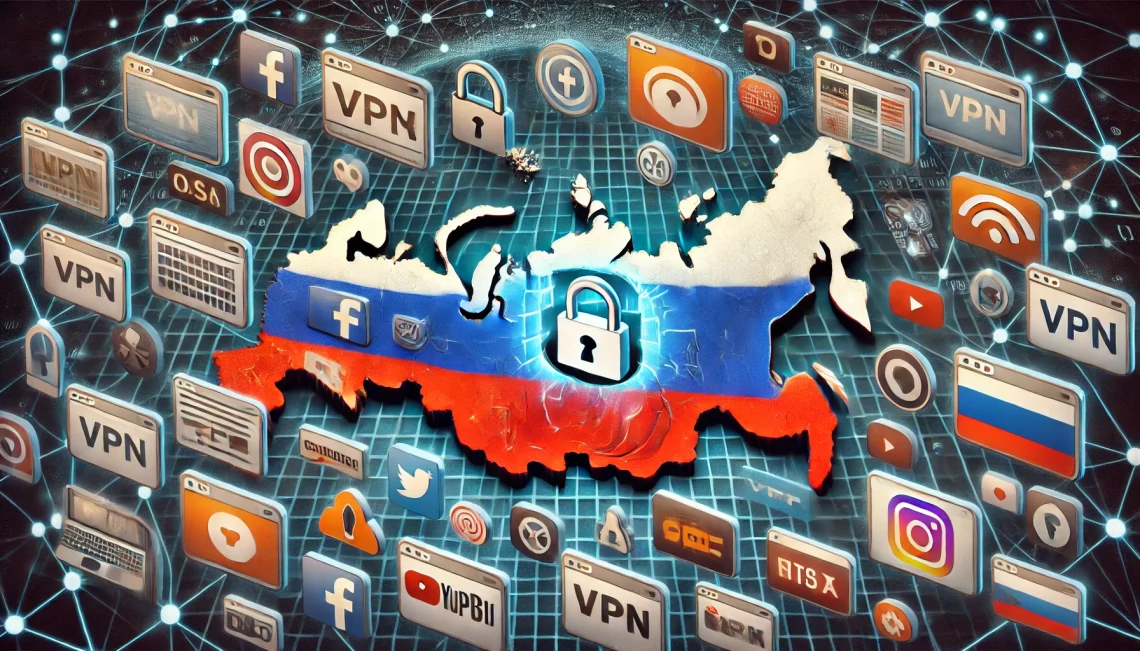
How to Access Blocked Websites in Russia: A Complete Guide for 2025
In recent years, internet censorship in Russia has become a growing concern for residents and visitors alike. As the government tightens control over online content, many websites, including news outlets, social media platforms, and entertainment services, have been restricted or completely blocked. However, there are ways to bypass these restrictions and regain access to the free web. In this guide, we’ll explore how to access blocked websites using a VPN in Russia, one of the most reliable tools for maintaining online freedom and security.
Why Are Websites Blocked in Russia?
The Russian government has implemented strict internet censorship laws that allow them to block access to certain websites. These restrictions often target platforms that:
- Provide independent news and political information
- Host user-generated content, such as social media networks
- Offer entertainment or services that contradict government regulations
Many popular websites like Facebook, Instagram, Twitter, and foreign news sites are often blocked or heavily restricted, limiting the free flow of information. This has prompted internet users to seek alternative ways to bypass censorship.
The Best Way to Bypass Censorship: Using a VPN
A VPN is one of the most effective tools for bypassing geo-restrictions and censorship. It encrypts your internet traffic and routes it through servers in other countries, making it appear as though you’re browsing from a different location. This allows you to access blocked websites and services in Russia securely and anonymously.
How a VPN Works:
- Encrypts your data: A VPN uses advanced encryption to protect your online activity, making it unreadable to anyone trying to spy on you, including government agencies.
- Changes your IP address: When you connect to a VPN server outside of Russia, your IP address changes, tricking websites into thinking you’re browsing from that server’s location.
- Avoids ISP throttling: Many internet service providers (ISPs) in Russia limit access to certain sites or slow down connections to international servers. A VPN prevents this by hiding your online traffic.
Step-by-Step Guide to Accessing Blocked Websites in Russia
Here’s a simple process to start accessing restricted content in Russia:
1. Choose a Reliable VPN Provider
Not all VPNs are created equal. When choosing a VPN to bypass censorship in Russia, consider the following:
- Strong encryption: Ensure the VPN has 256-bit encryption to keep your data secure.
- No-logs policy: Choose a VPN that does not store logs of your activity, ensuring maximum privacy.
- Servers outside Russia: Make sure the VPN has a wide range of servers in countries where the content you want is not blocked.
- High-speed connection: Streaming or downloading content requires fast speeds, so pick a VPN known for its performance.
Recommended VPNs for Russia:
- NordVPN: Offers thousands of servers worldwide, military-grade encryption, and strict no-logs policy.
- ExpressVPN: Known for its speed and ability to bypass censorship, it’s a top choice for users in Russia.
- Surfshark: An affordable VPN with a no-logs policy and unlimited device support, perfect for families.
2. Download and Install the VPN App
Once you’ve selected your VPN provider, visit their official website to download the app on your device. VPN apps are available for all major platforms, including Windows, macOS, Android, iOS, and even routers.
3. Connect to a Server Outside of Russia
After installing the app, open it and log in using your account details. Select a server in a country where the content you want to access is available, such as the United States, Germany, or the UK. By connecting to this server, you’ll be able to browse the web as if you’re in that location.
4. Browse Blocked Websites
With the VPN activated, open your web browser or app, and you’ll be able to access websites and services that are restricted in Russia. Whether you want to check social media, watch videos on YouTube, or read independent news, a VPN will grant you full access.
Other Methods to Access Blocked Websites in Russia
While VPNs are the most secure and effective way to bypass restrictions, there are other methods worth considering:
1. Tor Browser
Tor (The Onion Router) is a free browser that anonymizes your internet traffic by routing it through multiple servers across the world. It’s widely used to bypass censorship, although it can be slower than VPNs due to the multiple layers of encryption.
2. Proxy Servers
A proxy server can also help you access blocked content by routing your traffic through another server. However, proxies do not encrypt your data, making them less secure than VPNs.
3. Smart DNS Services
A Smart DNS service allows you to bypass geographic restrictions without changing your IP address. While it’s faster than a VPN, it doesn’t offer encryption, so it’s not the best choice for maintaining privacy.
Stay Safe While Accessing Blocked Content
While using VPNs and other tools to bypass censorship is effective, it’s crucial to remain aware of the legal landscape in Russia. Some VPN providers have complied with Russian laws to continue operating in the country, which could compromise your privacy. Always use a VPN that explicitly states it does not cooperate with government surveillance.
Conclusion
In Russia, internet users face increasing challenges to access the content they want, but using a VPN is the safest and most reliable way to regain your online freedom. By encrypting your data and masking your IP address, VPNs ensure you can browse without fear of censorship or surveillance. If you’re concerned about internet restrictions in Russia, take control of your browsing experience by investing in a trusted VPN provider today.



